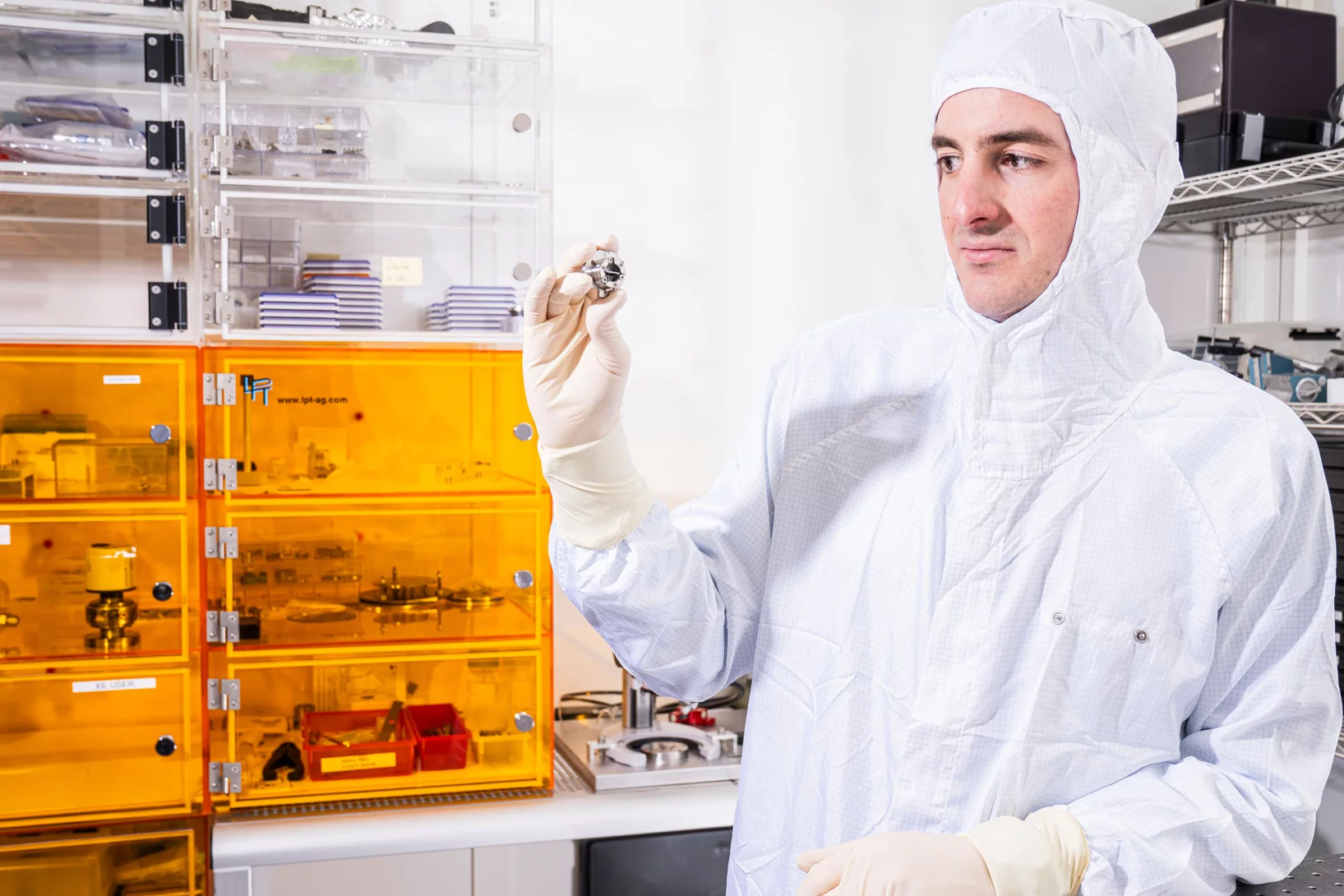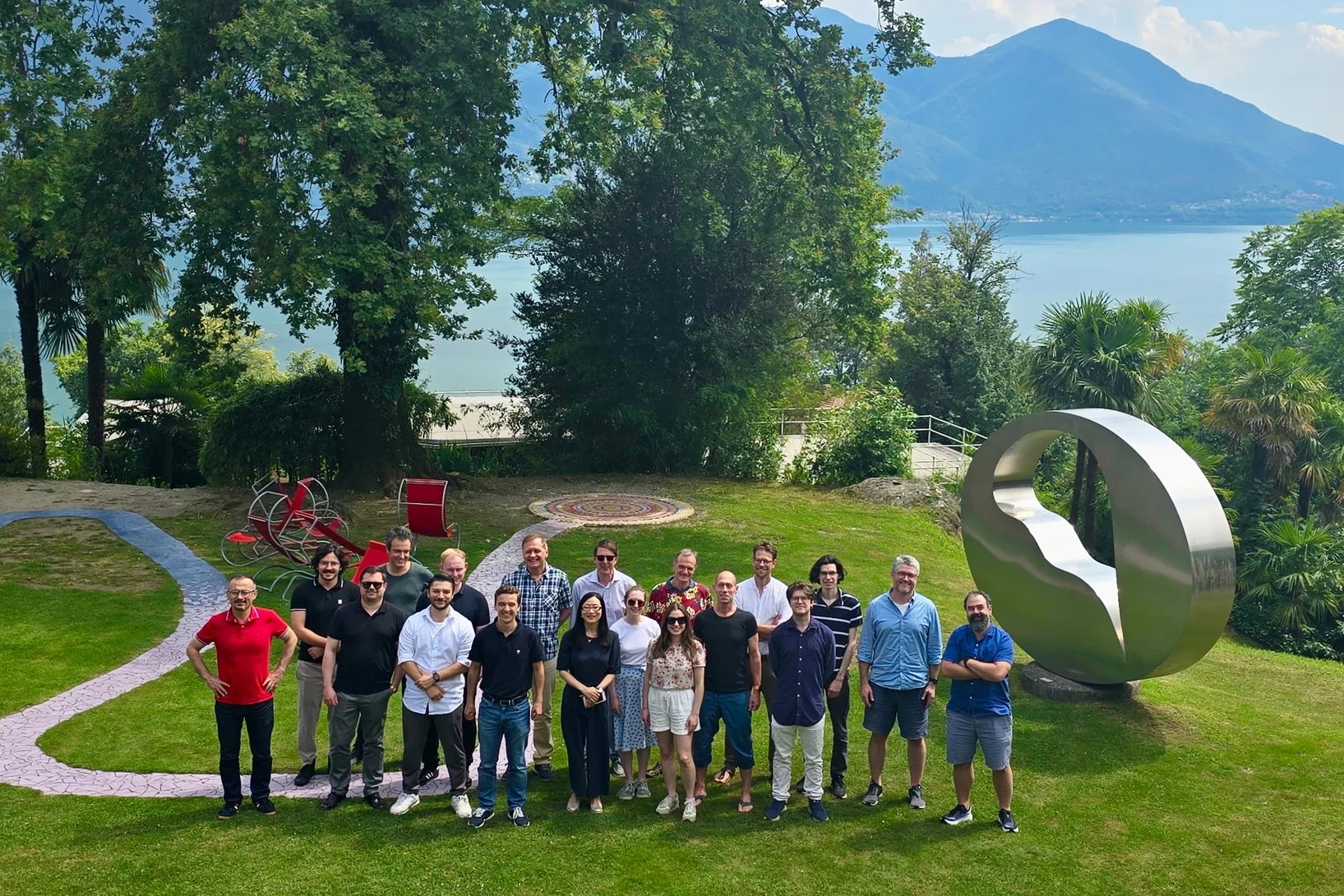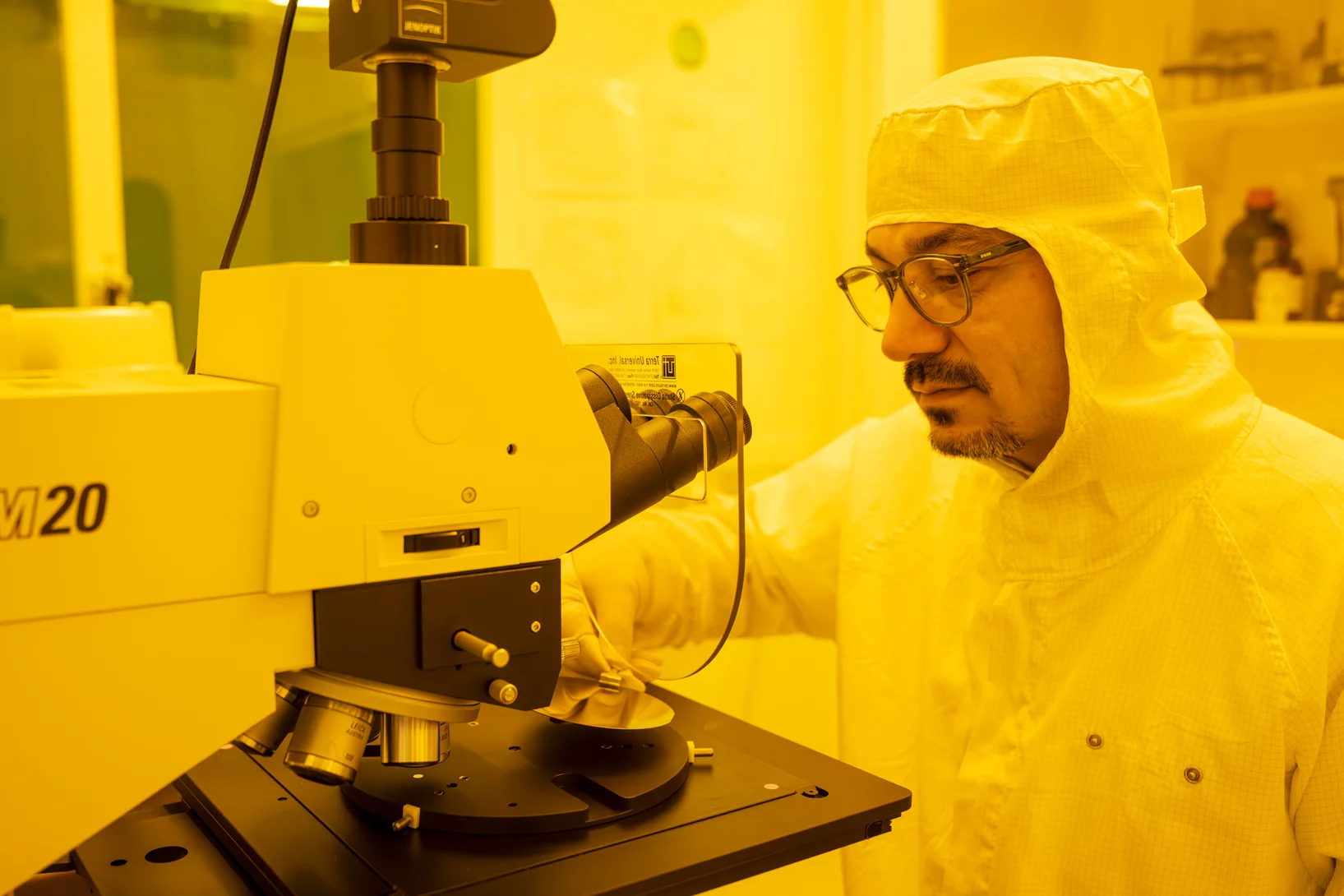Recognition at MNE 2024 Micrograph Contest
The MNE conference is the flagship event of the International Society for Micro- and Nanotechnology (iMNEs). The research fields covered by the MNE conferences have consistently driven advancements in the development of smaller and smaller structures. To emphasize the significance of micrographs in this field, the conference features a micrograph contest, sponsored and hosted by Zyvex Labs. Entries are judged based on both their technological relevance and artistic merit.
This year, Peng Qi from the X-ray Nano Optics group, LXN, CPS, earned third place and an honorable mention for his two submitted images.
Welcome to LXN Rok Venturini
Herzlich Willkommen Rok Venturini im LXN!
Welcome to LXN Jamie Bragg
Herzlich Willkommen Jamie Bragg im LXN!
Welcome to LXN Tijl Degroote
Herzlich Willkommen Tijl Degroote im LXN!
Novel Photoresist Chemistry Enables Lithography Approaching Angstrom-Scale Resolution
Photoresist materials are crucial in the manufacturing of computer chips, where the circuits are initially printed in the photoresist using photolithography. As the demand for smaller and more precise circuitry in computer chips grows, photoresists must resolve features with smaller sizes and higher density. One of the factors determining the ultimate resolution in lithography is the molecular size/mass of the photoresists.
Forschende zeigen, dass Computerchips noch kleiner werden könnten
Forscher am PSI erreichen mit EUV-Lithografie eine noch nie dagewesene Auflösung von 5 Nanometern (half pitch).
PSI-UCL-Surrey workshop on silicon and germanium based quantum devices
A team of PSI scientists as well as collaborators from UCL and the University of Surrey met at the Fondazione Monte Verità to discuss results and trace the roadmap for future research into quantum devices based on silicon and germanium.
Welcome to LXN Kajal Biju
Herzlich Willkommen Kajal Biju im LXN!
Neues Verfahren zur Herstellung von Halbleitern
Das Paul Scherrer Institut PSI arbeitet mit dem finnischen Unternehmen PiBond an der kommerziellen Nutzung hoch entwickelter Halbleiterprodukte, die mittels EUV-Lithografie hergestellt wurden.










